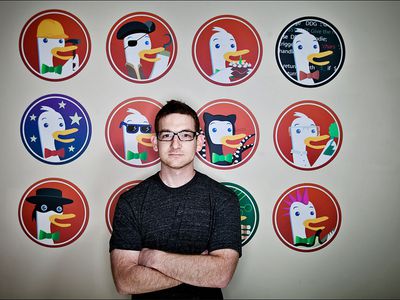
DBOS Vs. Linux: Unleashing Cloud Potential with a Complimentary Demo From ZDNet

DBOS Vs. Linux: Unleashing Cloud Potential with a Complimentary Demo From ZDNet

Eugene Mymrin/Getty Images
For years, Linux has been responsible for powering servers in the cloud, but given how the cloud has grown exponentially, and that Linux wasn’t designed specifically for the cloud, it became clear that something had to change.
Also: The best Linux distributions for beginners in 2024: Expert tested and reviewed
That change might come by way of Michael Stonebraker (Ingres, PostgreSQL, and VoltDB) and Matei Zaharia (Apache Spark and co-founder/CTO of Databrisk) who have worked with a team from MIT to create a revolutionary operating system called DBOS, aka DataBase OS.
Work on DBOS began in 2022. In an initial blog post , DBOS Inc. cofounders Peter Craft and Qian Li stated, “We believe the next generation of operating systems should be database-oriented because databases are built to solve the hard problems of modern computing. Databases today can manage petabytes of data, are distributed and increasingly cloud-native, and can secure and govern data with fine-grained access control and provenance tracking. Equally important, modern distributed in-memory data stores like VoltDB and FoundationDB are becoming extremely fast, and we show later they are fast enough to efficiently run many OS services that traditional disk-based RDBMSs could not.”
Newsletters
ZDNET Tech Today
ZDNET’s Tech Today newsletter is a daily briefing of the newest, most talked about stories, five days a week.
Subscribe
They went on to propose building a database-oriented OS that centered around two principles:
- All applications and OS states are stored in tables in a distributed database.
- States could only be accessed through database transactions.
Their OS consisted of four levels:
- User applications
- File system/scheduler/IPC/other OS services
- Distributed DBMS
- Microkernel services
Also: Thinking about switching to Linux? 10 things you need to know
With DBOS, operating system services are coded in SQL on the distributed DBMS, which is quite different than the traditional method of running the database management system within the user space on top of the operating system.
Once they had created a successful prototype of DBOS, they secured funding for DBOS, Inc., and, now, the operating system is available to try for free or you can contact sales for a custom plan . You can create a new account by signing in with your Google account. Once you’ve signed in, you’ll see a Getting Started page that instructs you to:
- Download the SDK and run a “Hello, Database!” application on your computer: SDK Quickstart
- Deploy your application to the cloud: Cloud Quickstart
You can install the DBOS SDK on Ubuntu Linux, MacOS, or Windows (WSL). It does require Node.js 20 or later and then uses Docker to deploy the app to the OS.
Also: Why I use multiple operating systems to get my work done
One of the biggest benefits of DBOS is reliable execution, so if an application is interrupted, it will automatically resume right where it left off.
The big question is: Will companies be interested in shrugging off their dependency on Linux for a radically new approach to cloud-centric operating systems?
Featured
The fastest VPNs: Expert tested and reviewed
Google Pixel 9 Pro XL vs. Samsung Galaxy S24 Ultra: I tested both and here are the key differences
How to upgrade your ‘incompatible’ Windows 10 PC to Windows 11
Your Android phone is getting an anti-theft upgrade, thanks to AI. How it works
- The fastest VPNs: Expert tested and reviewed
- Google Pixel 9 Pro XL vs. Samsung Galaxy S24 Ultra: I tested both and here are the key differences
- How to upgrade your ‘incompatible’ Windows 10 PC to Windows 11
- Your Android phone is getting an anti-theft upgrade, thanks to AI. How it works
Also read:
- [New] 2024 Approved Brilliant Visuals Uncover the Magic in These 7 Grades
- [New] Top 5 Essential Mac Live Streaming Apps
- [New] Unleash Creativity Turning GIFs Into Charming Stickers for Discord, WhatsApp & Telegram
- [Updated] In 2024, Designing an Editorial Epilogue
- [Updated] Top Online Spaces for YouTube Traffic Increase
- 2024 Approved Intova Edge X A Deep Dive Into Video Capture
- ChatGPT Talkback: Transforming Prompts Into Conversations
- Cookiebot-Enhanced: Experience Smart, Data-Driven User Tracking Solutions
- Expert Analysis of the Gratis Multi-Device Image Manipulation Tool, GIMP
- In 2024, How to Transfer Photos from Vivo V29e to New Android? | Dr.fone
- In 2024, Ten Strategies for Controlling a Twitch Broadcast
- In 2024, Ultimate Collection No-Cost AE Template Gold
- In 2024, Unlock the Potential of Text with Photo Shading PSX
- In 2024, Unveiling DJI Phantom 3'S Superior Flight Control Features
- In-Depth Analysis of Microsoft's Premium Ergonomic Keyboard – Top Quality Insights
- Pioneers of Possibilities The Leading 6 in Artistic Realms for 2024
- Resolving Graphics Card Issues: A Step-by-Step Guide by YL Software Experts
- The Complete Guide for Professional Livestreaming Using Zoom on YouTube for 2024
- Unleash Creativity with These Top Free Slideshow Templates for 2024
- Title: DBOS Vs. Linux: Unleashing Cloud Potential with a Complimentary Demo From ZDNet
- Author: Donald
- Created at : 2024-12-21 00:02:31
- Updated at : 2024-12-21 23:32:55
- Link: https://some-tips.techidaily.com/dbos-vs-linux-unleashing-cloud-potential-with-a-complimentary-demo-from-zdnet/
- License: This work is licensed under CC BY-NC-SA 4.0.